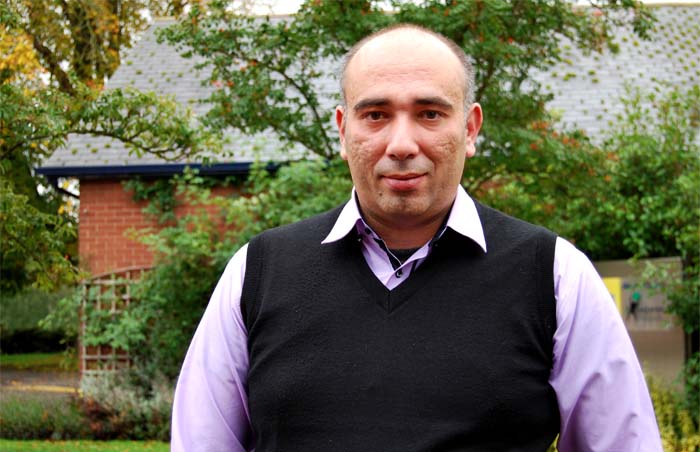
A doctoral student from Greece has completed three months’ research at Shropshire’s Harper Adams University to help him design computer software which could revolutionise farming.
Zisis Tsiropoulos, from the University of Thessaly, came to Harper Adams near Newport as part of his PhD research project entitled ‘Management Information Systems of Agricultural Equipment’.
He returned to Greece yesterday (MON) and hopes to develop the Management Information System over the next year.
His aim is to create a computer system that can accept data automatically from different devises about tractor and implement status and performance in all tasks carried out on the farm.
The data would then be analysed and used to benefit farm management decisions and improve efficiency.
Zisis, who gave a talk on his work to staff and students before returning to Greece, used three different projects running at Harper Adams to collect data to help in the development of the Management Information System, including the Dionysus vineyard scout robot project, the traffic and tillage project and the Robofarm project.
Zisis said: “The system will collect all the data, such as fuel consumption and GPS data, through the internet and will have all the economical details for crops and the fields, and will help farmers be more economical in their tasks.
“The system will say how cost efficient a particular vehicle is, will know the exact cost for every crop, what is good for a particular field where the farmer can earn money and what is not.
“It will keep records of every agricultural task – what the farmer spends, how many sprays they did, what was the yield, etc.
“The system will also hold all the details about the tractors and implements used and tell the farmer which ones are best for particular jobs.
“The system will monitor every movement made by the farmer. It will have one database and the more data on the system, the better and more efficient it will be.
“The future says we will have robots in our fields. Tractors may be more necessary for big jobs but smaller robots will be used for spraying, etc. So the system will be able to connect to robots too.
“My job is to make the system compatible with as many data monitoring devises as possible, to create one system to hold all the data that farmers can use to be more productive.
“The system we will design will be free, so all the farmer will need is a laptop to use the application, which could save them thousands in the long run.
“The system will be ready in about one year. We hope younger farmers will use it straight away. We don’t think some older farmers will as much just from the surveys we have done, which found many more young farmers are interested in it. But we hope if some start using it and like it then it will help more people to use it.”
